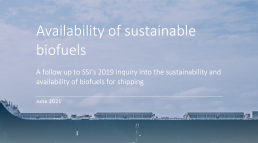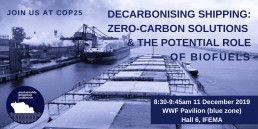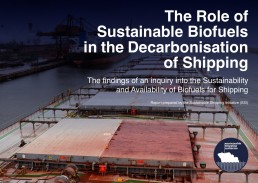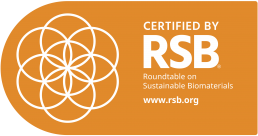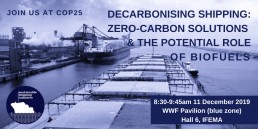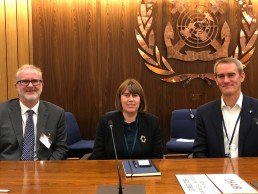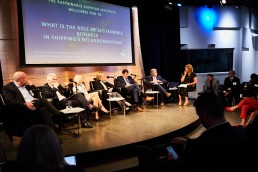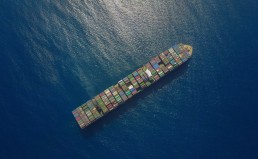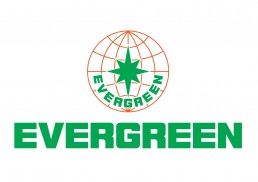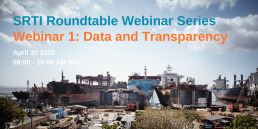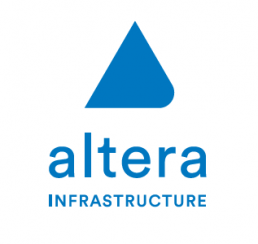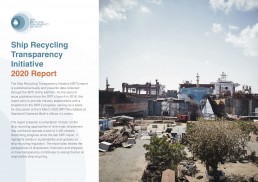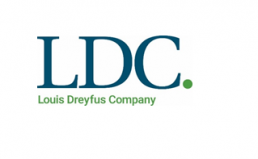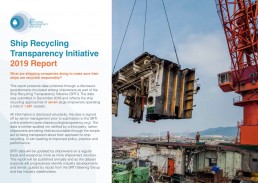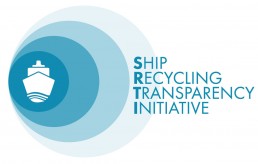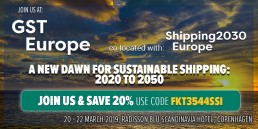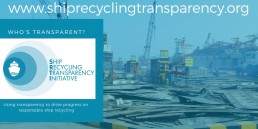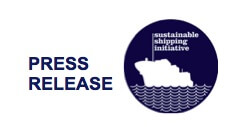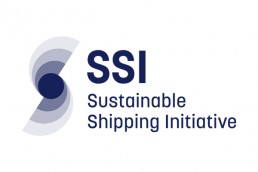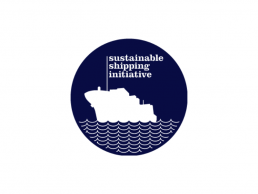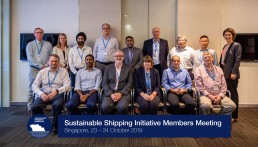Decarbonisation: Sustainable biofuels for shipping
Time period: 2018-2021
Members involved: Bunge, Forum for the Future, IMC, Lloyd’s Register, Louis Dreyfus Company, Maersk, Oldendorff Carriers, RightShip, South32, Swire Shipping, WWF
Partners: Forum for the Future, GreenFuelHub
In May 2018, the SSI released a report on Zero Emission Vessels (ZEVs) as part of its Low-Carbon Shipping working group, following which members agreed to embark on a deep dive into biofuels and launched an inquiry into the sustainability and availability of biofuels for shipping. 2019 then saw SSI lead a stakeholder consultation process which led to a high-level panel event at Climate Week NYC and a presentation of findings for the IMO’s Intersessional Working Group on Reduction of GHG Emissions, as well as to the launch of The role of sustainable biofuels in the decarbonisation of shipping report at COP25.
2020 and 2021 saw the work expand to focus on identifying sustainability criteria for all marine fuels under consideration for shipping’s decarbonisation, concluding the biofuel work. In June 2021, SSI launched the Availability of sustainable biofuels report, authored by GreenFuelHub, which reviewed the current landscape for biofuels in shipping, challenges around availability, as well as the industry’s role in the broader bioeconomy.
The role of sustainable biofuels for shipping
- Stakeholder consultations and roundtables on sustainability issues and availability considerations
- High-level panel event at Climate Week New York 2019
- Preliminary findings shared with additional industry stakeholders at IMO’s Symposium on IMO 2020 and Alternative Fuels and the 6th Intersessional Working Group on the Reduction of GHG Emissions; as well as the annual meeting of the Roundtable on Sustainable Biomaterials (RSB)
- The role of sustainable biofuels in the decarbonisation of shipping report (2019), launched at COP25 and submitted in 2020 for consideration by the Intersessional Working Group for the Reduction of GHG Emissions
- Availability of sustainable biofuels report (2021)
Phase 1 (2018) of the deep dive into biofuels for shipping generated an internal SSI knowledge paper raising nine key questions facing the shipping industry surrounding its adoption of biofuels. Following this, SSI members agreed on the need for wider engagement within and beyond the maritime industry to respond to these questions and the emerging challenges in the ongoing debate on biofuels for shipping.
Phase 2 (2019) saw the launch of an inquiry into the sustainability and availability of biofuels for shipping, conducting an extensive stakeholder consultation process throughout 2019 – facilitated by sustainability non-profit Forum for the Future – that brought together a diverse range of stakeholders encompassing actors in shipping, climate, energy among other sectors. The inquiry sought to answer the question: “Based on an in depth stakeholder engagement on the viability, suitability and sustainability in the context of the wider system – What is the role that biofuels play, if any, in the decarbonisation of shipping?”
Phase 3 (2020-21) further unpacked outstanding issues and unanswered questions raise in phase 2’s inquiry, drawing on academic research, industry reports, and publicly available data to outline the current landscape for biofuels in shipping, covering biofuel types and production methods, use and trials in shipping, as well as the challenges surrounding availability and shipping’s role in the broader bioeconomy.
- Bring together a diverse range of stakeholders to contribute thought leadership, canvass different perspectives, convene debate, and feed into the ongoing and wider dialogue on decarbonisation, zero emission shipping and the role of sustainable biofuels in the energy transition
News & Resources
Availability of sustainable biofuels
June 1, 2021
The Sustainable Shipping Initiative’s journey to Climate Week NYC
September 20, 2019
Ship Recycling Transparency Initiative
Time period: 2018-2022
Governance: The Ship Recycling Transparency Initiative is an independent initiative hosted by the SSI between 2018-2022 and taken over by Smart Freight Centre (SFC) as of 1 January 2023. The SRTI can be accessed through the www.shiprecyclingtransparency.org website, or by contacting srti@smartfreightcentre.org.
It is governed by a Steering Group composed of representatives from the following organisations: American Hellenic Hull Insurance Company, Altera Infrastructure, CMA CGM, Gard, Hapag-Lloyd, Lloyd’s Register, A.P. Moller-Maersk, Nykredit, Standard Chartered Bank, Stolt Tankers, Swiss Re Corporate Solutions, Teekay, and Wallenius Wilhelmsen.
Launched in 2018 following the work of the SSI’s ship recycling working group, the Ship Recycling Transparency Initiative (SRTI) is an open initiative with a mission to improve transparency across the shipping value chain, increase disclosure of ship recycling policies and practices, and enable and encourage cargo owners, financial stakeholders and others to make informed decisions that will in turn drive improved performance.
The SRTI provides a platform through which shipowners can publicly disclose their ship recycling policies, practices and progress, thereby holding themselves to account before key stakeholders – including customers, investors, governments and NGOs – and for the benefit of the wider public. This access to publicly disclosed data enables cargo owners, financial stakeholders and other groups to make informed decisions and reward good practice through the market.
The SRTI aims to accelerate a voluntary market-driven approach to responsible ship recycling practices through transparency; and subsequently to influence and improve decision-making about ship recycling, creating an industry-wide level playing field.
The platform launched in 2018, allowing shipowners to report information on ship recycling against a set of pre-defined disclosure criteria developed by key industry stakeholders.
Signatories include a number of SSI members, but have grown beyond SSI to include financial institutions such as Nykredit and Gard, cargo owners like BMW and John Deere, and shipowners like Wallenius Wilhelmsen and CMA CGM.
See a full list of SRTI signatories
In 2019, the SRTI launched its first annual report at Tradewinds 2019 Ship Recycling Forum, compiling data on the ship recycling approaches of 7 shipowners. In 2020, the second annual report was launched, now covering 9 major shipowners operating a total of 2,433 vessels (~36% of the global container fleet’s tonnage).
Throughout 2020, the SRTI has hosted a series of webinars (in lieu of a physical Roundtable in London postponed due to the COVID-19 pandemic) focusing on three key themes for the SRTI’s further development: data and transparency, circular economy, and the role of financial stakeholders. The series culminated in a virtual roundtable event on September 9, 2020.
In June 2020, the SRTI collaborated with Lloyd’s Register and Lloyd’s List on an episode of the Lloyd’s List Shipping Podcast focused on ship recycling. Featuring SRTI Steering Group members Lloyd’s Register, NORDEN, Standard Chartered Bank and the SSI/SRTI Secretariat, the podcast presented a unique opportunity to discuss the role of data and transparency in improving ship recycling, and to bring the conversation to the broader maritime community.
In January 2023, hosting of the SRTI was taken over by Smart Freight Centre, an international non-profit organisation focused on reducing greenhouse gas emissions from freight transportation.
News & Resources
HKC+10: Tradewinds Ship Recycling Forum 2019
March 1, 2019
How to make the future of ship recycling more responsible
January 29, 2019
Driving change in ship recycling: Stakeholder perspectives
The Ship Recycling Transparency Initiative has collaborated with Lloyd’s Register and Lloyd’s List on a special edition of the Lloyd’s List Shipping Podcast. Moderated by Lloyd’s List Managing Editor Richard Meade, the podcast brings together industry experts to look at how different maritime stakeholders approach and understand ship recycling.
In the past decade, regulatory efforts seeking safer ship demolition have seen many organisations reassess their activities – much has been achieved but there is much more that can be done.
Leading players in ship recycling share their insights on what works, what doesn’t, the shift in industry sentiment around recycling and the challenges ahead, with a key focus of the discussion being on the role of data and transparency in driving change.

Moderator:
Richard Meade, Managing Editor, Lloyd’s List
Richard is currently responsible for Lloyd’s List agenda-setting output of news and analysis with ambitions to lead the online revolution for valuable business journalism. Richard joined Lloyd’s List in 2006 after jumping ship from the weekly maritime magazine Fairplay where he ran the news and features desk. He took the traditional route into shipping analysis, via a degree in psychology and a two-year stint at the Financial Times Group.

Panelists:
Andrew Stephens, Executive Director, Sustainable Shipping Initiative/Ship Recycling Transparency Initiative
Andrew has a truly international background in the maritime industry, working for leading maritime service providers, in the position of Chief Operating Officer, such as Wilhelmsen Ships Service and Wallem Group, in a career which has seen him working in the UK, UAE, USA, Norway and Hong Kong. He was responsible for leading and managing business transformation, continuous improvement, integration and change management programmes, drive strategic planning and implementation consequently delivering on improved customer satisfaction, business performance and efficiency. After a successful period in both international groups he joined The Sustainable Shipping Initiative in August 2018, where he is responsible for leadership of the Secretariat.

Jennifer Riley-James, Senior Ship Recycling Specialist, Lloyd’s Register
Jennifer is the Senior Ship Recycling Specialist for the Lloyd’s Register Group (LR) responsible for development and management of LR’s ship recycling services, including IHM and end of life. She also represents LR recycling interests on several external bodies. UK based, Jennifer joined LR in 2015 with a background in research, science and policy.

Kristina Kunigenas, Sustainability Manager, NORDEN
Kristina Kunigenas has been working with governance and sustainability-related issues since 2006. Latest as a Sustainability Manager with the shipping company NORDEN (since 2017), working on NORDEN’s sustainability strategy, various policies and initiatives, and several areas of reporting. Before joining NORDEN, Kristina worked at a Danish pension company (PFA) and the Danish Export Credit Agency (EKF). She has also worked in advisory in San Francisco, California.

Roger Charles, Executive Director, Environmental and Social Risk Management
Roger Charles is an Executive Director in the Sustainable Finance team at Standard Chartered in Singapore. In his role, he leads in delivering technical environmental and social expertise to business transactions and client advisory globally, ensuring project financing adheres to international standards on sustainability and best practice. He has in-depth expertise in several sectors including energy, shipping and ship recycling, manufacturing, and agribusiness including forestry and palm oil; With over 20 years’ experience in various roles within the oil and gas industry, his areas of expertise include technical environmental and safety engineering, impact assessment, and corporate sustainability strategy, implementation and assurance. For complete bio, please visit http://linkedin.com/in/rcharlesuk
SRTI Webinar Series: Data, circularity and financial stakeholders
Following the postponement of the Ship Recycling Transparency Initiative (SRTI) in-person roundtable event (March 2020) due to COVID-19, the SRTI community is instead meeting at a series of themed webinars between April and June 2020. Each webinar covers a theme of relevance to the SRTI's vision and responsible ship recycling: data and transparency, circular economy, and the role of financial stakeholders.
The webinar series forms an important part of the SRTI’s further development, identifying areas for expansion of the disclosure criteria against which shipowners are currently disclosing, and stakeholders’ use of this data. They will also explore common themes and concerns for the potential development of disclosure criteria for ship building yards and ship recycling facilities, to be shared in a final online roundtable event, scheduled to take place later this year.
 SRTI Steering Group member Simon Bennett, General Manager – Sustainable Development at The China Navigation Company facilitated the first webinar, which focused on the role of data and transparency in driving responsible ship recycling.
SRTI Steering Group member Simon Bennett, General Manager – Sustainable Development at The China Navigation Company facilitated the first webinar, which focused on the role of data and transparency in driving responsible ship recycling.
 35 participants attended the webinar, representing a diverse range of our stakeholder groups and including shipowners, ship recycling facilities, NGOs, financial stakeholders, among others.
35 participants attended the webinar, representing a diverse range of our stakeholder groups and including shipowners, ship recycling facilities, NGOs, financial stakeholders, among others.

Read the summary and learn more about the webinar series here.
Read more about the Ship Recycling Transparency Initiative.
SSI Impact: News from our journey to 2040
The SSI Newsletter is published quarterly and is the place to find news from the SSI community, our partners and the impact of our collective work along our journey to a sustainable shipping industry by 2040.
Subscribe to SSI Impact: News from our journey to 2040
Read the latest issue of SSI Impact (01/2020)
Archive
SSI Impact 01/2019
SSI Impact 02/2019
SSI Impact 03/2019
SSI Impact 04/2019
SSI Impact: News from our journey to 2040
The SSI Newsletter is published quarterly and is the place to find news from the SSI community, our partners and the impact of our collective work along our journey to a sustainable shipping industry by 2040.
Subscribe to SSI Impact: News from our journey to 2040
Read the latest issue of SSI Impact (04/2019)
Archive
SSI Impact 01/2019
SSI Impact 02/2019
SSI Impact 03/2019
SSI Report: The role of sustainable biofuels in shipping's decarbonisation
The Role of Sustainable Biofuels in the Decarbonisation of Shipping: The findings of an inquiry into the sustainability and availability of biofuels for shipping outlines the findings of an inquiry commissioned by the SSI, reflecting a stakeholder consultation process facilitated by SSI member Forum for the Future to explore the potential role (if any) of biofuels in the decarbonisation of shipping. Forum for the Future conducted the desktop literature review as well as facilitated stakeholder consultations, and put forward a draft of preliminary key findings on which the conclusions were drawn by the SSI membership.
The process was guided by SSI’s Decarbonisation Working Group, whose members played an integral role throughout the consultations. It also benefited from the active engagement and contributions from speakers and participants of the seminars, webinar and Climate Week NYC event.
The report was launched at the 2019 United Nations Climate Change Conference, COP25 (Madrid, 11 December 2019).

Scan the QR code to access the full report or click the links below to download the files in pdf.
Flyer (pdf, 2 MB)
Executive Summary (pdf, 7 MB)
Full report (pdf, 6 MB)
SSI at COP25: Zero-carbon solutions and the potential role of biofuels
On 11 December at COP25 in Madrid SSI hosted a side event at the UN’s annual climate conference – COP25 – during which the report The Role of Sustainable Biofuels in the Decarbonisation of Shipping was launched.
Outlining the outcome of an inquiry into the sustainability and availability of biofuels for shipping, the report was compiled by SSI to share the findings on the role that biofuels could play in the decarbonisation of the shipping industry.
Throughout 2019, SSI’s inquiry has explored the issues at play surrounding the sustainability and availability of biofuels for shipping, bringing an important perspective to the conversation on alternative fuel options for decarbonisation and accelerating the delivery of emission reductions. SSI supports a zero-emission shipping sector by 2050 and is both fuel- and technology-agnostic.
COP25 was an opportunity for SSI to launch the report, presenting the findings and recommendations of our inquiry and for key stakeholders to share their perspectives on these. The side event took place within the WWF Pavilion, followed by a Meet-the-Expert session at the EU Pavilion.
Watch the event recording here.
Speakers
Andrew Stephens, Executive Director, Sustainable Shipping Initiative
Simon Bennett, General Manager – Sustainable Development, The China Navigation Company
Fernanda Carvalho, Policy Manager Global Climate and Energy Practice, WWF
SSI shares key issues emerging from biofuels inquiry with IMO Intersessional Working Group
On 15 November SSI delivered a presentation at the 6th session of the International Maritime Organization's Intersessional Working Group on Reduction of GHG Emissions from Ships (ISWG-GHG 6) in London, during a slot sponsored by SSI member WWF.
Anthony Field of WWF, Katharine Palmer of Lloyd's Register and SSI ED Andrew Stephens shared some of the key issues emerging throughout our inquiry on the role of biofuels in shipping's decarbonisation. The session was an opportunity to obtain final feedback during the final stages of the inquiry before the report is launched in December at COP25.
SSI slide deck available here
The ISWG-GHG 6 meeting took place during 11-15 November, which proved to be a full week that saw IMO make progress in pushing forward their targets on reducing GHG emissions including agreement on the establishment of a dedicated workstream for the development of lifecycle GHG/carbon intensity guidelines for all relevant types of fuels:
Alternative fuels
"With a longer-term perspective, and in order to encourage the uptake of alternative low- and zero-carbon fuels in the shipping sector, the Working Group also agreed on the establishment of a dedicated workstream for the development of lifecycle GHG/carbon intensity guidelines for all relevant types of fuels. This could include, for example, biofuels, electro-/synthetic fuels such as hydrogen or ammonia, etc. Many participants to the meeting highlighted the importance of undertaking this work as soon as possible, in order to pave the way for the decarbonization of the shipping industry."
The next ISWG-GHG session will be held on 23-27 March 2020, the week before the next meeting of IMO's Marine Environment and Protection Committee (MEPC) which is expected to establish a Working Group on Reduction of GHG Emissions from Ships. In October 2020 the MEPC is expected to receive the completed Fourth IMO GHG Study.
More on ISWG-GHG 6
More on SSI's inquiry into the role of sustainable biofuels in shipping's decarbonisation
The SSI family meets in Singapore
On 23-24 October SSI members were hosted by Standard Chartered Bank for their bi-annual members meeting in Singapore.

A full two days with a packed agenda SSI members came together to review SSI progress; celebrate collective achievements, while simultaneously learning and inspiring each other; and continue building the momentum towards shaping the narrative towards a sustainable shipping industry. While we may be based at different locations around the world, the SSI family is close-knit: our members meetings are intimate, and based on mutual trust.
In Singapore we were delighted to have a number of guests join us bringing additional perspectives to the table. Among our guests were Anglo American; BW Group; Eastern Pacific Shipping (EPS); Epic Gas; GasLog; Institute of Marine Engineering, Science & Technology (IMarEST); Sumitomo Corporation; and Watson Farley & Williams. Thank you SSI members and guests for your active participation – and special thanks to our host Standard Chartered Bank.

For sustainable shipping, What should START and STOP?
We asked participants what they thought should happen for sustainable shipping to happen. Here’s a sample of what we came up with:
START: Diversity & inclusion, transparent ship recycling, responsible transition to autonomous ships. STOP: Fossil fuels, poor ship recycling, single use plastics
Industry insights: Maritime Singapore Green Initiative, tsunami detection in the Pacific, Standard Chartered Bank and its role in responsible ship recycling and the role of the media
Clockwise, from top left: Tham Wai Wah (MPA); Roshel Mahabeer (Standard Chartered Bank) and Stephanie Beitien (Eco-Business); John Kornerup Bang (Maersk) and Katharine Palmer (Lloyds Register); Roger Charles (Standard Chartered Bank)
We heard from the Marine and Port Authority (MPA) of Singapore’s Chief Sustainability Officer Tham Wai Wah, who shared with us MPA’s Sustainability Journey towards 2030. He highlighted how MPA is actively engaging in a number of sustainability-related activities including international cooperation through the IMO; promoting sustainable port development and sustainable shipping. They recently published a Maritime Sustainability Reporting Guide under MPA’s Maritime Singapore Green Initiative, in which MPA’s journey appears as a case study.
We were delighted that The China Navigation Company’s Managing Director James Woodrow joined us, alongside Simon Bennett, General Manager – Sustainable Development. Simon shared CNCo’s recent public-private collaboration on tsunami monitoring and the maritime sector, that saw a pilot project drawing on ship-based GNSS data to support tsunami detection, meteorology and numerical weather prediction, and space weather. On ship recycling, Standard Chartered’s Roger Charles talked about what he has been working on to raise the bar on ship recycling, through the Bank’s engagement in the Ship Recycling Transparency Initiative (SRTI) and ongoing collaboration with PHP shipyard in Bangladesh.
We heard from Eco-Business’ Director of Partnerships Stefanie Beitien, who shared the perspective of the media and its role in shaping the business narrative to one of sustainability. Finance and energy are examples of topics of relevance to shipping that are increasingly attracting media attention and coverage. Eco-Business’ approach seeks to “find a balance between hope and fear”; Stefanie shared some tips on how SSI and its members can shine a light on the positive story of sustainable shipping through compelling storytelling.
Sustainable finance: The momentum from clients, regulators and other stakeholders across and beyond the finance sector is accelerating

Roshel Mahabeer, Executive Director Sustainable Finance at Standard Chartered Bank shared some SSI member insights and perspectives on sustainable finance in the shipping industry, prompting an engaging and interactive discussion. Standard Chartered Bank supports sustainable finance by mapping their business against the SDGs to create a green and sustainable product framework - accredited by Sustainalytics - that sets out the sustainable activities that Standard Chartered finances. As part of this framework they offer a number of sustainable products across five sustainable finance capabilities: loans, bonds, deposits, renewables and blended finance. More on the sustainable finance movement here.
Decarbonisation, getting to zero and sustainable biofuels
Members’ discussions on decarbonisation covered a number of issues on which individual members and SSI as a collective are focused. Katharine Palmer, Global Sustainability Manager of Lloyds Register and Maersk’s Head of Sustainability Strategy John Kornerup Bang presented potential decarbonisation transition pathways, coinciding with the launch of their joint study that identified alcohol, biomethane and ammonia as the three new fuels likely to be first generation net-zero fuels for shipping. We also discussed the recently launched the Getting to Zero Coalition – of which SSI is a knowledge partner – a coalition that has gained global attention and contributed to the growing pressure on shipping to decarbonise. Members also had the opportunity to reflect on SSI’s inquiry into the role of sustainable biofuels in shipping’s decarbonisation – including a discussion on its findings and upcoming launch of its report.


